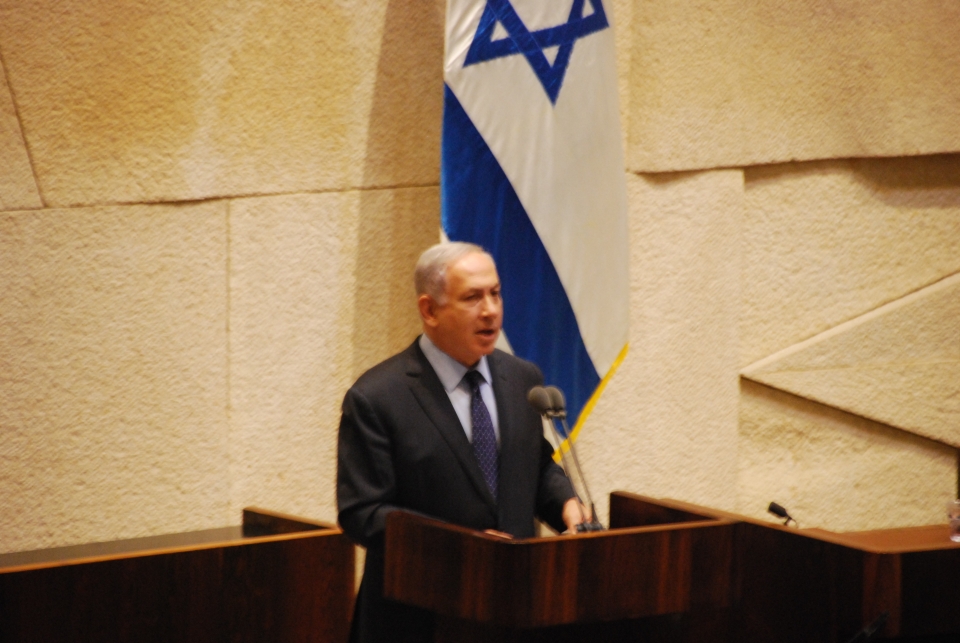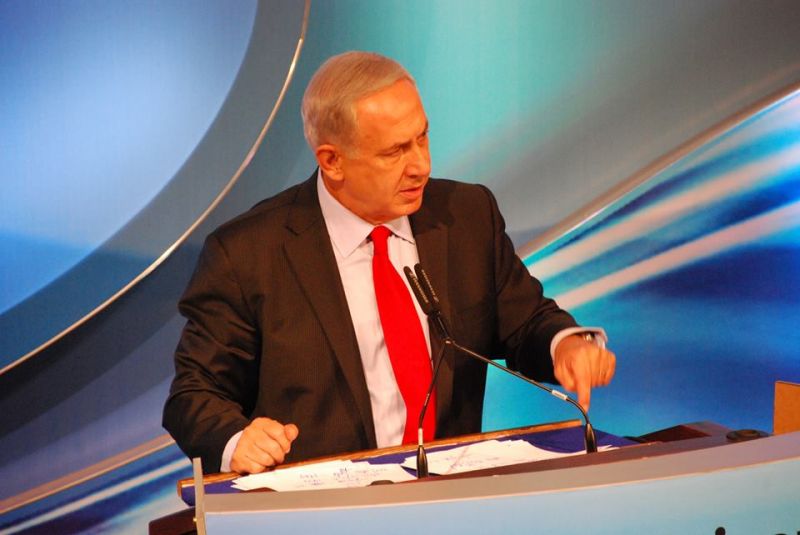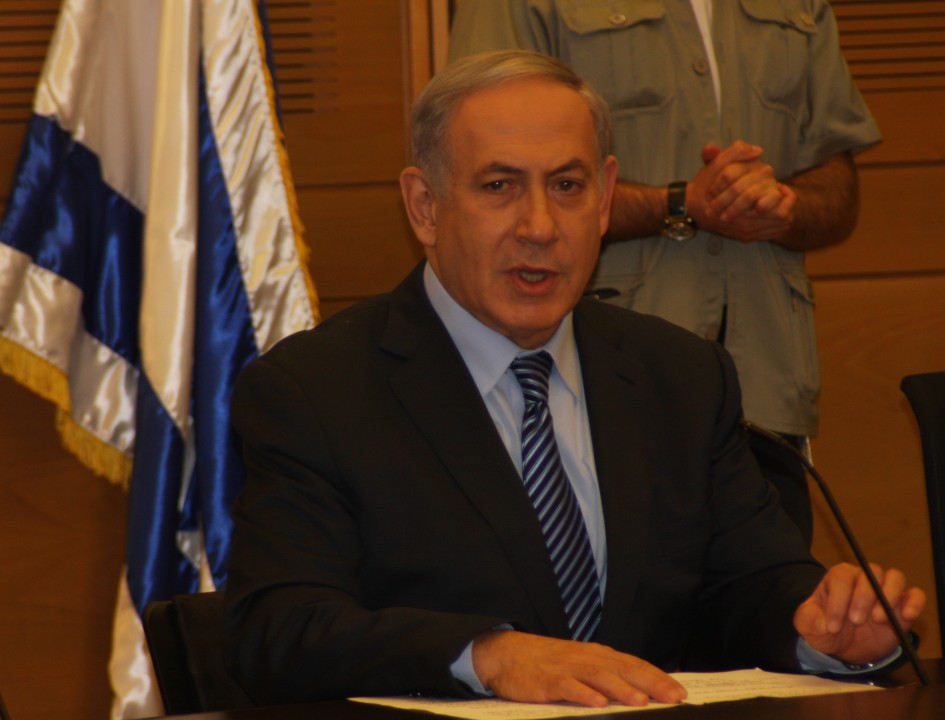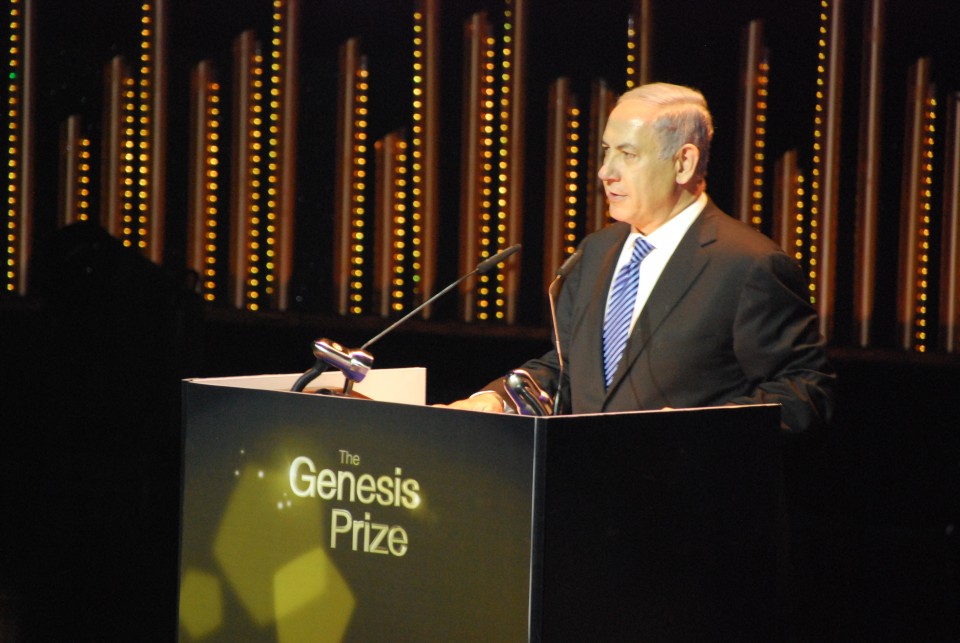Prime Minister Benjamin Netanyahu's Speech at the 40th Anniversary of Sadat's Visit to the Knesset
 Honorable Speaker of the Knesset, Yuli Edelstein,
Honorable Speaker of the Knesset, Yuli Edelstein,Members of the government,
Opposition leader MK Isaac Herzog,
Members of the Knesset,
Distinguished Guests,
I have now met with the Egyptian ambassador to Israel, Hazem Khairat and his team.
He gave me greetings from Egyptian President Abd al-Fattah al-Sisi and Foreign Minister Shukri, and I congratulated him on this important occasion.The peace between Israel and Egypt is robust, it is a strategic peace benefitting both countries. And yet, I am sad to see the meager presence of ministers and Knesset members at such an important event. We'll have to fix it at the fiftieth anniversary event, but I think there will be opportunities earlier.
And maybe one of the reasons is that we've gotten used to it too fast. It has become routine, which is obvious but does not go without saying.
I remember the tremendous excitement that gripped me and all citizens of Israel and many in the world. Sadat's arrival, his landing in Israel and then his arrival in the Knesset, was like the excitement I had when I saw the first person landing on the moon. It was something of this initial breakthrough, the breaking of routine, the perception of the future. In those 40 minutes he spent on the plane, the distance between Egypt to Israel, he changed history. It was much shorter than the forty years of wandering of our people in the Sinai Desert, but no less dramatic. Two ancient nations whose paths intersected in ancient times; two neighboring nations, who had waged an all-out war for a generation, overcame the residue of hostility and offered each other a hand of peace.
Sadat's visit was a breakthrough in the history of the Middle East. It enabled direct contact between the Arab world and the Jewish state, leading to a historic reconciliation, the first of its kind. Time teaches us that this peace is a stable anchor in our swollen and bleeding region. Now it's true, maybe it's not a perfect peace - but it's a peace that definitely pays off. It pays both countries, and not only us, and despite the crises and shocks on the way – the peace is sustainable.
But there is a basic condition for peace, which has always been and will always be: the power of Israel. In the Middle East, alliances are made with the strong, not with the weak. Sadat said when he came here: "I came to make peace with a strong leader," - he said. Sadat, too, was convinced before his arrival in Jerusalem that Israel was a powerful country. That since the War of Independence - the IDF has resolutely pushed back on every attack, even surprise attacks, and has safeguarded the security of the State of Israel.
The importance of the 'Iron Wall' has been proven time after time. Not only to preserve our existence, but also to create the foundation for peace with our neighbors. Only when Israel is strong, we can reach non-combat, and from that to get to peace. A peace that brings to recognition in the State of Israel, and that prevents bloodshed in the future. Menachem Begin said it in a few sentences. "No more war, no more bloodshed". And Anwar Sadat, when he stood here at this podium, he said at this occasion that moved us very much: "I've declared more than once that Israel is an existing fact." Which means, first comes the recognition in the existing fact, and from that stems the recognition of the right to exist. That is why we have to always be strong enough so there will never be any undermining, doubts, about our everlasting existence.
That is how Sadat acted upon, unlike our Palestinian neighbors, who still refuse to recognize the State of Israel's right to exist. Unfortunately, I say, I have not yet to meet a Palestinian Sadat who will declare his desire for conflict to end, recognize the State of Israel with any borders and support our right to live in security and peace.
Today - four decades after Sadat's visit to Israel - large parts of the Arab world understand not only what happened here forty years ago, they understand very well what can happen here because of the changes taking place in the region. Many countries know that the threat to the Middle East does not stem from Israel, but rather the opposite: Israel is the moderate, responsible and tough factor that is struggling with this threat. The greatest threat in the region stems from radical Islam and violence, led by Iran on the one hand and by ISIS on the other, radical Islam that brutally tramples everything in its path.
President Sadat himself was a victim to this Islamist fanaticism. His murder in Cairo - 36 years ago - shocked the world. And yet, the peace remained steadfast. The peace with Egypt knew ups and downs, but it traversed all the pitfalls during the reign of President Mubarak and afterwards.
In the last few years, under the leadership of Egyptian President Al-Sisi, this peace, this relationship is rejuvenated. We maintain open channels of communication that are vital to Israel and Egypt's security. My recent visit to New York, where I met with the Egyptian president, greatly strengthened these relations. We are committed to expanding the circle of peace to other countries as well as to our Palestinian neighbors. I know that President Trump and his team are also committed to this goal.
The greatest obstacle to the expansion of peace today is not found in the leaders of the countries around us. The obstacle is public opinion on the Arab street, public opinion that has been brainwashed for years by a distorted and misleading presentation of the State of Israel. And after many decades - it is like geological layers - it is very difficult to reveal and present Israel in its true light, in its beautiful and true face, in the help we provide, both in the region and in Africa, also in Asia, in rescue missions, both in technology and assistance to the wounded from Syria. Thousands, thousands. It is very difficult to penetrate these geological layers to the rock of truth, and therefore the peace remains cold.
So I say, a cold peace is preferred over a hot war, but a warm peace is preferred over cold peace- and we all want that. That is why this perception of Israel must change. Otherwise it will be hard to break though the circle, the Palestinian one as well, because there is constant propaganda, not only in Judea and Samaria, but also in the Palestinian Authority - all the time, endless propaganda. You say, "How can they not know the truth? They live here". The propaganda is so strong, their establishments, the layers, these sediments of the lie are so powerful, and that is what prevents the breakthrough. That must be changed.
I see changes, the budding of this change, in public opinion - I'm not talking about the leaders - in the Arab space. We see certain changes in certain parts of public opinion in the Middle East. I think that this is something that should be encouraged and developed in the region, because in the end it is something that will radiate inward. When I talk about peace from the outside, it is not primarily the ability to leverage our connections now with Arab states to break through the Palestinian barrier - it is more in the consciousness, in the drip of consciousness, that Israel is different, it is different and that the Palestinian narrative, as they call it, adapted to the truth. To look differently, with an objective eye, with a real eye on the real Israel.
I would like to see the peace with Egypt adapted to this truth. To expand contacts, the live contact between the nations in economy, culture, tourism. To break the wall, the historic propaganda wall, and I hope we are at the beginning of such a process. At least according to our measures, we see it formulating in certain parts of the region. Naturally, not everything of this sort is in our hands- and the change, if happening, is expected to take time, but there is no doubt we are in a good time to expand cooperation and break stereotypes.
Peace is important to Israel, peace is important to Egypt, peace is important to the Arab nations, it is important to Egypt of course. Anwar Sadat's visit to Israel 40 years ago taught us that in our region, the unbelievable can become believable. That is why I believe with all my heart that this great event will not be a passing episode; It will remain the cornerstone of the peace building in the Middle East - in this generation and in future generations.
And in honor of this visit, I ask of you, Mr Speaker, to schedule a special meeting marking 41 years to Anwar Sadat's visit to Israel and to the Knesset. He deserves it, we deserve it.


